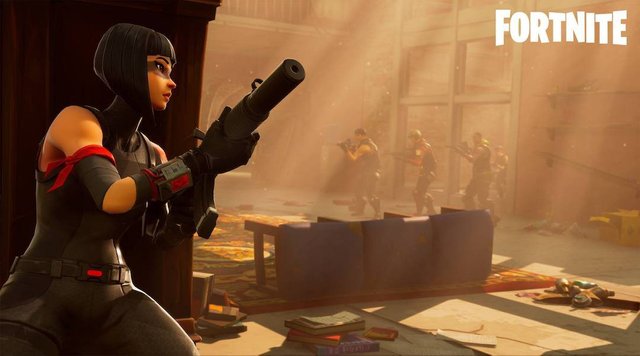Fortnite' is not the only problem that major video game firms are facing, analysts say
The free-to-play video game "Fortnite" has shaken up the video game industry in recent years.
Its success has led some to question the future of major video game companies such as Electronic Arts, Take-Two Interactive and Activision Blizzard.
But analysts who spoke to CNBC mostly said the problems faced by the gaming heavyweights go beyond competition from Fortnite. Fortnite" — a free-to-play online video game — has shaken up the gaming industry in recent years, catapulting itself beyond the sector into the wider socio-cultural landscape.
Fortnite" — a free-to-play online video game — has shaken up the gaming industry in recent years, catapulting itself beyond the sector into the wider socio-cultural landscape.
Its runaway success has led some to question the future of top video game companies such as Electronic Arts (EA) and Take-Two Interactive, as intense competition in the gaming space dents sales of industry heavyweights.
Earlier in February, shares of EA and Take-Two were hammered after they released third quarter earnings. Activision Blizzard also saw major declines for its shares that day.Analysts say the problems faced by these top gaming firms go beyond the rising competition from Fortnite, which is made by Epic Games.
"I think the problem is ... not just Fortnite," said Tom Wijman, senior market analyst at Newzoo, a marketing analytics firm specializing in games and esports. "The main reason is that expectations are too high and Fortnite is an easy thing to point your finger at — but it's not the cause of the problem."
Wijman said that every game is now being compared to Fortnite, "but the way Fortnite exploded in terms of popularity, there is no comparison."
It would be "foolish" to assume that Fortnite is "the one and only reason" for the troubles that the top gaming companies are facing, said Daniel Ahmad, an analyst at Niko Partners.
Take-Two Interactive declined to comment for this story, while Electronic Arts and Activision Blizzard did not respond to CNBC's requests for comment.Fortnite's "Battle Royale" mode, arguably its most popular and the one which made the game a household name, involves 100 players being thrown onto a map in a deathmatch with the aim of becoming the last one surviving.
Its popularity has attracted the likes of top video game streamers, influencers and even celebrities like rapper Drake.
Reflecting the popularity of the game, there have been more than 25 million YouTube views of a "live" in-game concert by electronic dance music producer Marshmello in early February.
Unrealistic expectations
Commenting on the recent stock market turmoil faced by the video game giants, Wijman said the problem lies with "ballooned" expectations of these companies as well as their shareholders, adding that the recent sell-down was "long overdue."
But it's more than just inflated expectations, said Niko Partners' Ahmad, who pointed to other concerns such as blockbuster titles underperforming last year and future products in the pipeline. He also said the emergence of categories such as mobile games and the battle royale genre could alter the competitive landscape.
In fact, EA recently launched its own online, free-to-play battle royale title called "Apex Legends." That game has proven to be popular so far, with the company announcing that 25 million players signed up for it within a week of its launch on Feb. 5.
However, Apex Legends may owe its own success to Fortnite and its predecessors such as "PlayerUnknown's Battlegrounds."
That's because the market for battle royale games has moved so quickly that the performance of a new title that comes into the market owes a lot to the preceding game, said said Piers Harding-Rolls, director of research and analysis director of games at IHS Markit.
"Fortnite has become such a big thing that you immediately understand what Apex Legends is about," he said.
Competing for time and money
Although Fortnite may not be the only reason why major video game companies are struggling, analysts generally agreed that the competition for gamers' time will likely become a problem. Free-to-play video games tend to keep their players engaged through content updates or in-game events in order to retain their user base, making money through the sale of in-game items.
Newzoo's Wijman said that if people choose to play one game, "they naturally cannot play another."
Harding-Rolls said that gamers will be less likely to pick up different titles and/or spend money on other games if they become very engaged a particular one.
To illustrate his point, Harding-Rolls said one could argue that the spending on cosmetic items in Fortnite could overlap with the same audience that pays money for in-game purchases in EA's popular FIFA soccer simulator franchise.